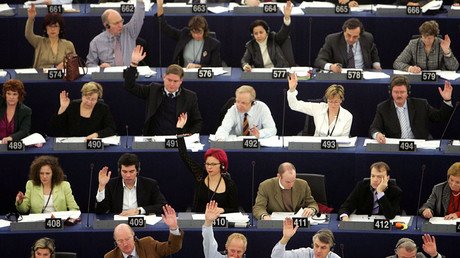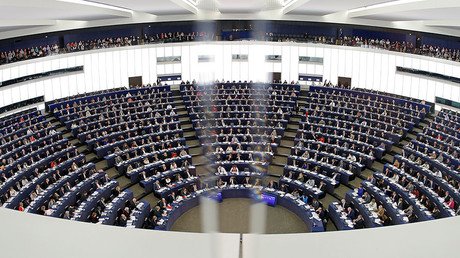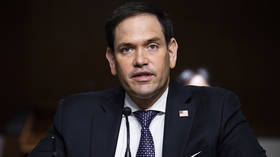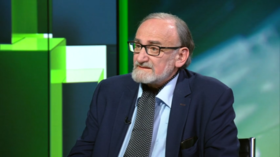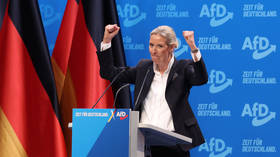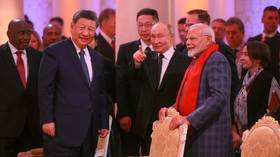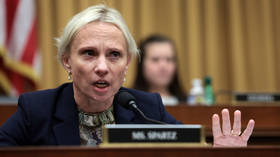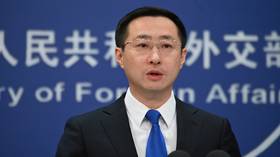EU resolution on 'Russian propaganda' is attack on media freedom & stinks of hypocrisy
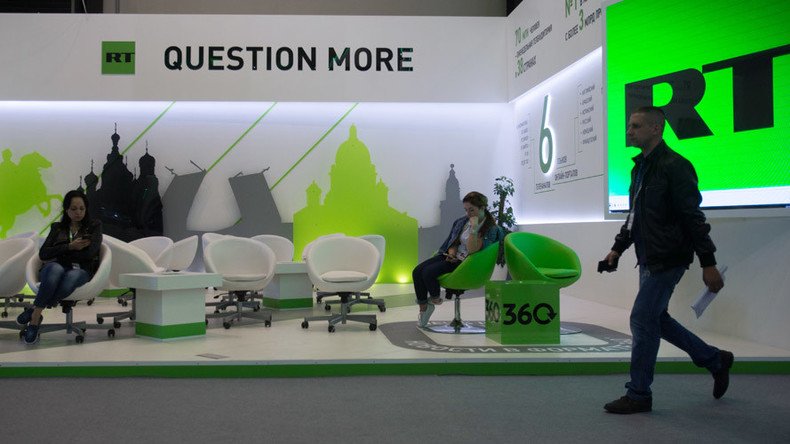
There’s news. There’s fake news. And then there’s “pseudo” news, which according to the European Parliament, encompasses any Russian media which doesn’t adhere to a Western narrative and neglects to present an entirely pro-EU perspective on world events.
In a completely bonkers move this week, the EU Parliament approved a resolution to counter “Russian propaganda” and the “intrusion of Russian media” into the EU. The resolution was adopted with 304 MEPs voting in favor, 179 MEPs voting against it and 208 abstaining. The most bizarre part, however, is that the resolution lumped Russian media in with Islamist propaganda of the kind spread by terror groups like the so-called Islamic State. Thus Russian media is put on the same level with videos of ISIS beheadings and incitements to mass murder.
According to the resolution, Russian media exists to “undermine the very notion of objective information or ethical journalism,” and one of its methods is to cast all other information “as biased or as an instrument of political power.”
The real hypocrisy here is that this last part almost exactly describes how Brussels regards any media critical of its own actions. The resolution criticizes channels like RT for casting other news sources as biased or as instruments of political power while smearing anyone who associates with the Russian media as Kremlin puppets, bought and paid for by Vladimir Putin — and yet the irony appears completely lost on them.
Act as I say, not as I do
The totally barmy resolution also “notes with regret” that Moscow uses meetings with EU counterparts only for propaganda purposes, rather than for establishing a “real dialog” with Brussels. Another statement ripe with irony, given Brussels just a couple of weeks ago hosted an EU-Russia summit, the aim of which was to foster “mutual understanding” between Russia and the EU — without inviting any representatives of the Russian government. Instead, they asked obscure and practically unknown opposition figures with zero power or influence inside Russia. As noted by RT columnist Bryan MacDonald, this would be like Brussels hosting a summit to discuss the future of the United States and inviting the Green Party’s Jill Stein while ignoring the two parties that actually hold power. Under Brussels’ own definition, one could easily argue that the EU is trying to “undermine political cohesion” in Russia just as it accuses Moscow of doing in Europe.
Unfortunately, this ludicrous report is not a one-off. It appears to be part of an all-out attack on the Russian media coming from every angle. One of the most surprising developments comes from the organization Reporters Without Borders (RSF), which apparently prides itself on protecting journalists and press freedom worldwide. RSF has declared that it will no longer give interviews to any reporters from the Rossiya Segodnya group, which includes RT and the Sputnik news agency.
Similarly, a couple of weeks ago US State Department spokesman John Kirby refused to acknowledge an RT reporter as being on an equal footing with other journalists in the briefing room. Kirby point blank refused to treat Gayane Chichakyan as being “on the same level” because she represented a “state-owned” outlet — despite AP reporter Matt Lee stepping in to defend her.
Now, while RT may be state-funded, one very much doubts that Kirby would chastise a reporter from, say, the virulently anti-Russia BBC, whose Trust members are all appointed by the Queen on the advice of UK government ministers. He probably also doesn’t worry too much about US government-funded media like the CIA-founded RFE/RL, which operates for the exclusive purpose of undermining the Russian government and spreading pro-US information. Around the same time as Kirby’s comment, RT’s video agency Ruptly was banned from attending a Pentagon media event because the agency is a “Russian propaganda platform.”
Now, if RT was spreading false information, all these concerned think tankers, government agencies, and politicians might have a point. But you would be hard-pressed to turn on RT any day of the week and hear one of its anchors spreading blatant lies. You might hear a different editorial slant than you would on CNN, but in a world dominated by Western corporate media, alternative viewpoints are necessary and refreshing.
McCarthyism goes global
Meanwhile, the British Parliament is set to hear another report denouncing public figures for their alleged links to Russia and the Russian media. Neo-McCarthyism has indeed gone global. The British report, cautiously and tastefully named ‘Putin’s Useful Idiots’ was written by Andrew Foxhall of the notorious neocon think tank the Henry Jackson Society. The report challenges the credibility of politicians or public figures who appear sympathetic to Russia and proposes a crackdown on such individuals.
The British report even suggests news laws which could force politicians to declare all of their media appearances, presumably so those who appear on the likes of RT can be smeared as Kremlin agents and Putin’s puppets.
This is incredible and truly worrying. What is going on here should not be confused with anything to do with protecting democracy and the credibility of journalism. In fact, what the EU is doing is engaging in an all-out attack on journalism, much the same way they would accuse unfriendly governments of cracking down on the spread of information that did not suit the prevailing narrative. But dangerously, they are doing it under the guise of concern for democratic principles and values.
These people are suggesting it is nothing short of treasonous to hold an opinion that goes against the acceptable government-sanctioned consensus. In any other part of the world, this is the kind of mentality and action that Brussels and London criticize as a severe violation of media freedom and nothing short of state repression.
If the European project is solid as a rock, surely Brussels has nothing to worry about. But if a couple of Russian media outlets present such a grave threat to its existence, there must be some serious cracks in the foundations. Ultimately, it speaks to the fragility of the union that the EU so quickly throws its “values” out the window when the going gets tough.
The statements, views and opinions expressed in this column are solely those of the author and do not necessarily represent those of RT.

